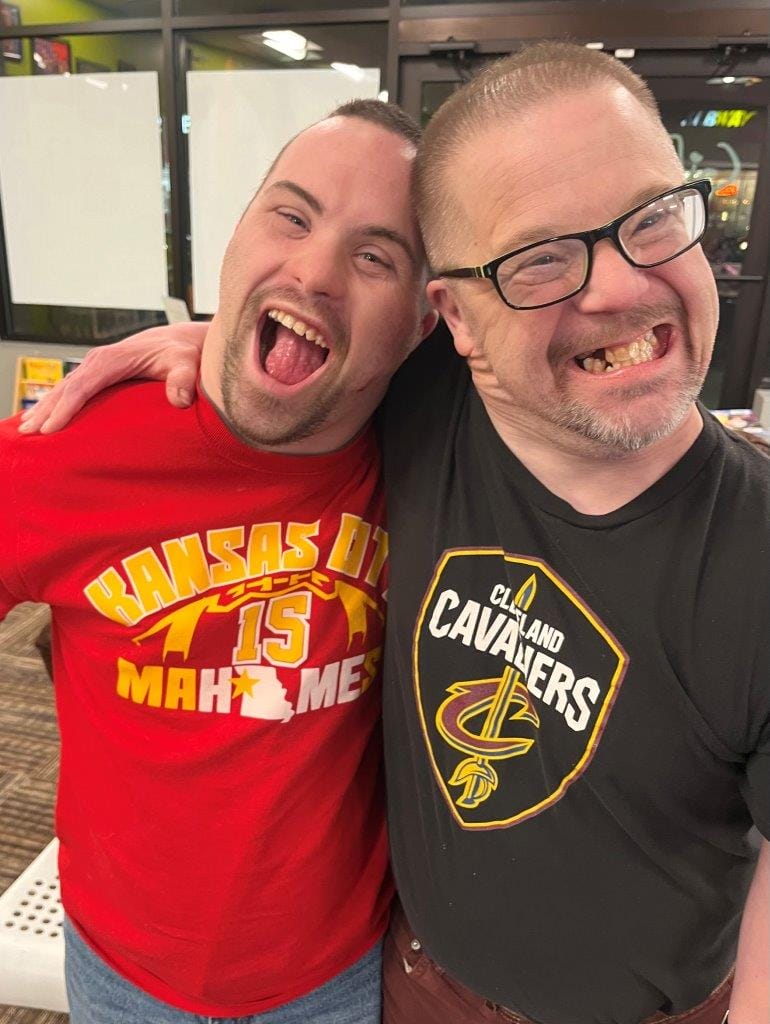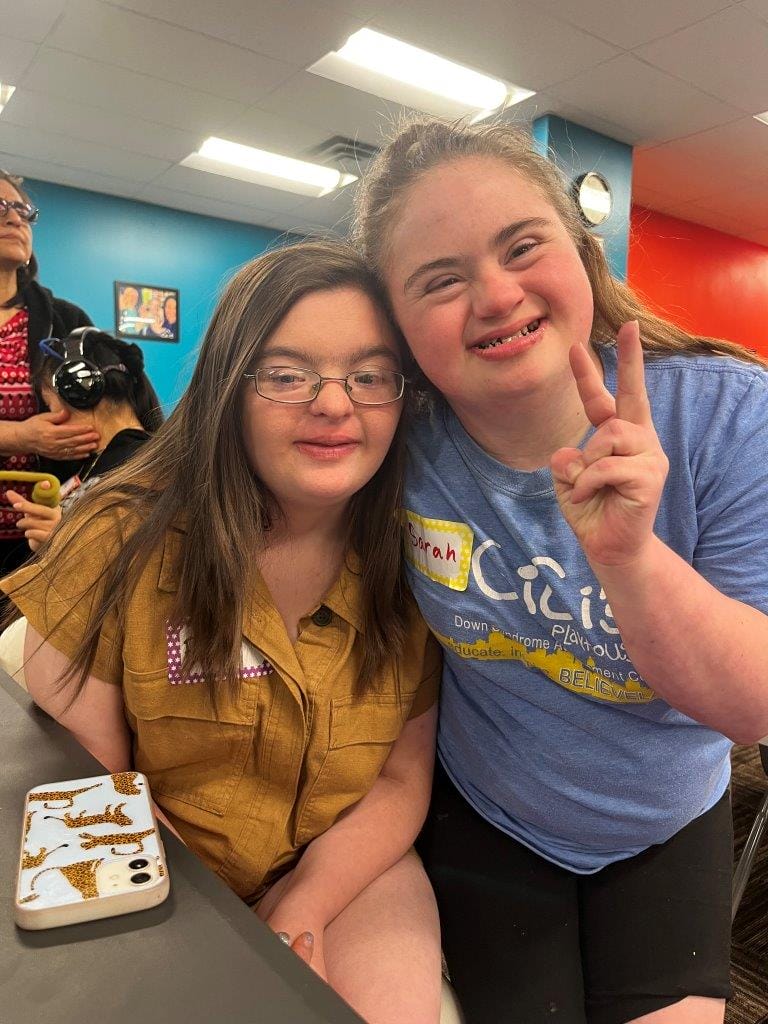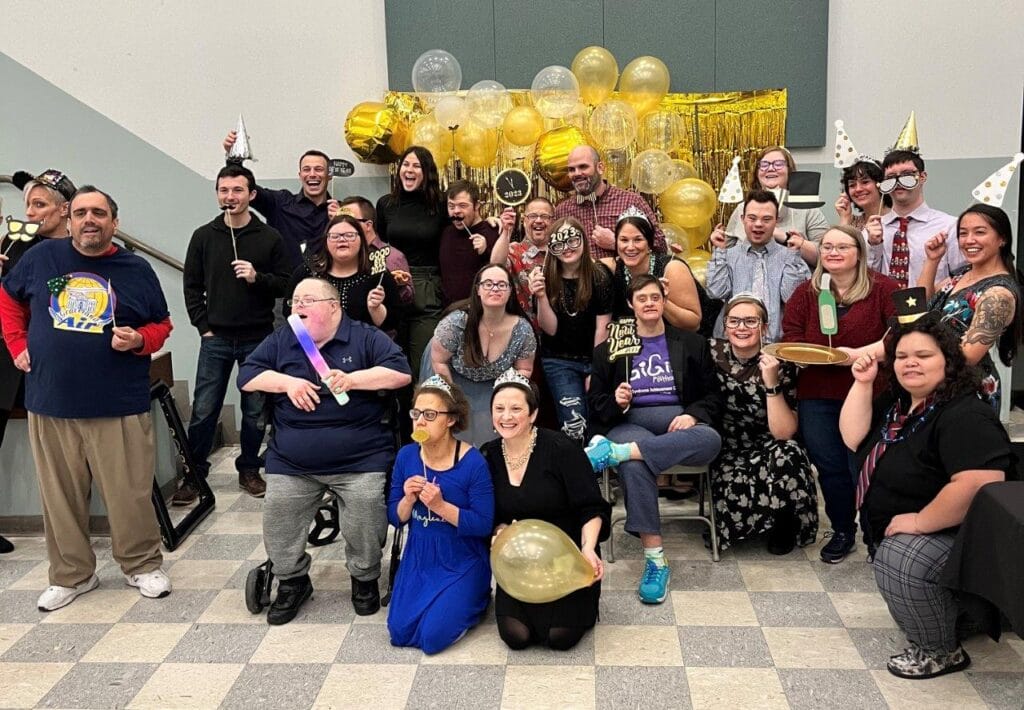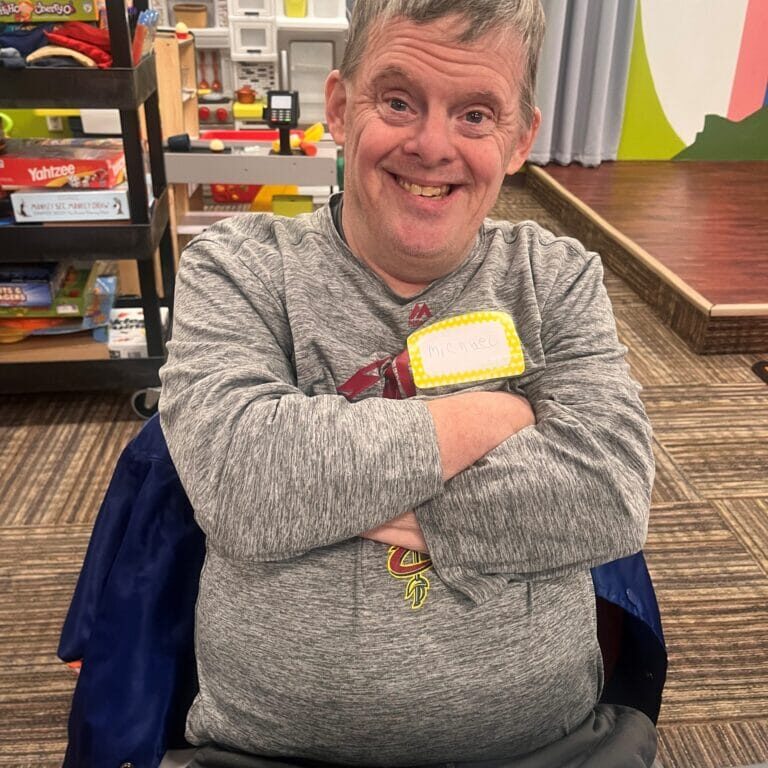Treating Adults with Down Syndrome Like Adults: A Guide to Dignity and Respect
It’s important to recognize and treat adults with Down syndrome the way they deserve—with dignity, respect, and a full understanding of their capabilities. Just like any other adult, they have the ability to contribute meaningfully to their communities, pursue their goals, and live fulfilling lives. But how do we ensure we’re treating them with the respect they deserve? Here are some key things to DO and NOT DO when interacting with adults with Down syndrome.



What to Do
Assume Capability
Adults with Down syndrome are capable of doing many things, just like any other adult. Whether it’s holding a job, living independently, voting, or being an active member of society, start by assuming they can handle it. Give them the same opportunities you would anyone else.
Use Age-Appropriate Language
Speak to adults with Down syndrome in the same tone and manner you would use with any adult. Patronizing or “baby talk” is not only unnecessary but also disrespectful. They are adults, and deserve to be spoken to as such.
Promote Independence
Encourage and support their independence. Rather than immediately offering to help, let them try tasks on their own. Whether it’s ordering at a restaurant, completing tasks at work, or handling personal decisions, allow them the space to act on their own. Be there to assist only when asked or needed.
Celebrate Their Achievements
Adults with Down syndrome achieve great things. From graduating school to securing jobs to living independently, they are capable of remarkable accomplishments. Acknowledge and celebrate their successes, just as you would anyone else’s.
Respect Their Choices
Every adult, regardless of ability, has the right to make their own choices. Respect their decisions, whether it’s about how they spend their time, who they socialize with, or what they want to achieve. Help them by offering guidance when appropriate but understand that their decisions are their own.
Support Their Right to Participate
Adults with Down syndrome can vote, get married, hold jobs, and be active members of their communities. Advocate for their right to participate fully in society. Ensure that they have access to the same opportunities as everyone else.
What NOT to Do
Adults with Down syndrome have boundaries like anyone else. Respect their personal space, preferences, and autonomy. Don’t assume you know what they want or need without asking.
Avoid treating adults with Down syndrome like children. We don’t need to call them “cute” or act “surprised” when they talk about an adult topic. They have adult interests, needs, and desires. Infantilizing them undermines their autonomy and potential.
Too often, people assume individuals with Down syndrome can’t do things before even giving them a chance. Don’t make that mistake. Give them the opportunity to show what they are capable of before offering assistance.
Adults with Down syndrome have the right to make their own choices. Whether it’s about work, relationships, or day-to-day activities, don’t assume you know what’s best for them without involving them in the decision-making process.
While it’s natural to want to lend a hand, offering too much help can strip someone of their independence. Instead, be available if needed but allow them the time and space to complete tasks on their own.
Respecting Their Role in Society
Adults with Down syndrome have the potential to be active, productive members of their communities. They can work, volunteer, vote, and participate in social activities. In fact, many adults with Down syndrome live independently, attend college, hold meaningful jobs, and contribute positively to their communities.
By treating them with the respect and dignity they deserve, we can help them thrive. It starts with understanding that they are adults with full, rich lives, and by respecting their independence, capabilities, and choices. We must create an inclusive world that sees them for who they truly are, which is adults!
Let’s remember that every adult—regardless of their abilities—deserves to be treated with respect and dignity. When we approach adults with Down syndrome with this mindset, we create a more just and compassionate society where everyone can thrive and be included.
Recent Posts





I’m doing a lot of researching on finding help for my son with Down’s Syndrome. Out of the research your company name keep returning to the home screen. It would be a pleasure to sit and discuss the help that you all can give to Alex. Alex really need to see the world in a different realm of what he was raised into it hurts my heart to see my son like this, he really need help with his life.
How could I begin a virtual health class for adults with Down syndrome . I am a certified health coach with a PhD in health psychology and I want to help those with Down syndrome to work for their health.
Hi there!! We think this is an incredible idea!! Our brain immediately goes to our Virtual Playhouse, where they reach so many individuals and families across the globe. You can take a look at their website for more details and how to contact them: https://gigisplayhouse.org/virtual/
Outside of that, you could possibly connect with local hospitals/doctor’s offices to see if they would be interested in partnering with you!
My 60 year old Down syndrome son has a wonderful life,living at home. He has 2 mentors that work with him on alternate days if week. He is very happy with them and his scheduled activities,but he doesn’t want to get ou5 if the car when he comes home, what shoykd we do?
Hi Elaine! We are so happy to hear you son has a wonderful life full of activities with you and his mentors!
Sometimes, individuals with Down syndrome need additional support with transitional moments. Getting out of the car to come home is a transition! We are guessing he doesn’t want the great day with his mentors to end! It is sometimes difficult for our friends to transition from one task to the next, and that in most cases we find that it’s due to uncertainty about the situation, expectations, or what is coming next. Something that could help is having his mentors prep your son throughout the day. For example, at lunch his mentors could share “After we eat lunch, we will go to the library, take a bathroom break and have a snack, then we will get in the car and drive home!” Then have those mentors repeat it throughout the day, so your son knows what to expect and what is coming next. A visual timeline could also be helpful, where your son sees all the events of the day in order and can remove each event after they are completed.
Both of these help prepare the individual for what’s next, instead of being uncertain or unsure. We suggest you try that first! If that doesn’t work, feel free to email us at cleveland@gigisplayhouse.org. We would be happy to help 🙂
We,his parents have same difficulty with him getting out if car when we get home, we were out fi4 lunch,them ceramic class,then home where we got ther3 he put hood over his face and refused to get ou5 if car, we left him.he is safe. He is in garage. It’s been 1/2 hour,still in there.